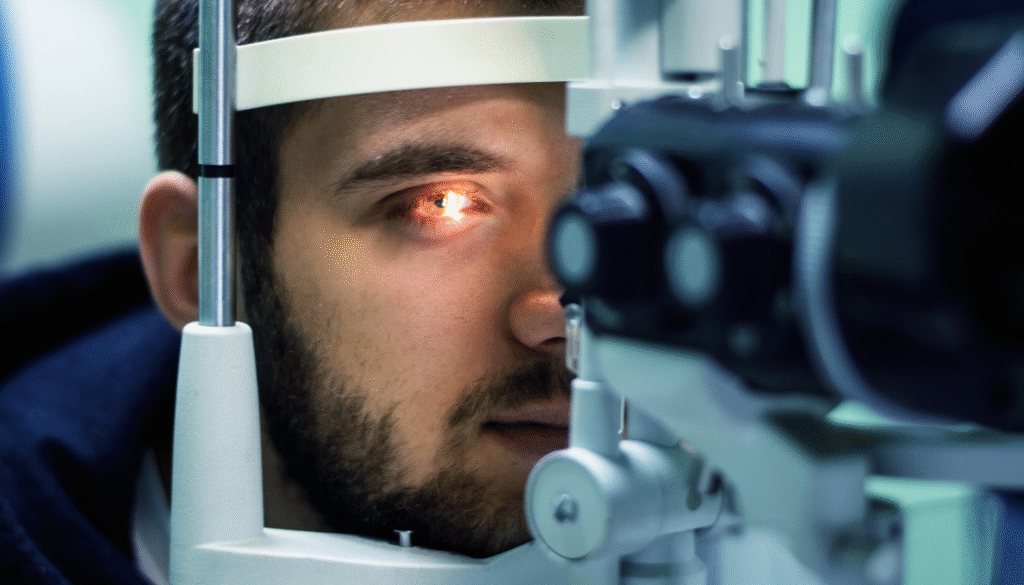
A contact prescription exam involves a series of tests to see if you are a candidate.
The exam measures your cornea and prescription. Your doctor also learns about lifestyle needs and personal preferences.
There are many options, including soft lenses, gas permeable contacts, bifocals, multifocals, dailies, bi-weeklies, monthlies, and extended wear. Specialty designs are also available for dry eyes or hard-to-fit patients.
With this information, your doctor recommends the best lenses for your vision needs.
Orthokeratology, or ortho-k, uses gas permeable lenses to reshape the eye overnight. This flattens the cornea to correct mild or moderate nearsightedness and some astigmatism.
Conditions such as astigmatism, presbyopia, keratoconus, or dry eyes do not prevent lens wear. They only require more care and patience.
A standard eye exam checks eye health and vision sharpness. Regular exams are important but do not include lens-specific testing.
A contact lens evaluation checks your ability to wear contacts safely. It also provides a prescription that differs from glasses.
Based on results, your doctor can order the right lenses for you.
During a vision test for contacts, you’ll discuss lifestyle needs and eye conditions that affect comfort.
Tell your doctor if you want colored lenses, bifocals, multifocals, or monovision options. These details guide the fitting process.
After measurements, trial lenses may be placed in your eyes. The doctor might insert them or show you how.
You’ll wear them for about 20 minutes. This helps assess comfort and clarity.
Sometimes, several trials are needed before finding the right fit.
Once a fit is confirmed, your doctor orders lenses. You will also get detailed instructions for wear and care.
If you are new to contacts, insertion and removal may feel hard at first. With practice, most patients adjust quickly.
One size does not fit all. Lenses must match your eye shape. Poor fit causes irritation, blur, or damage.
At lens fitting appointments, your doctor measures:
Weak tear film may require special corneal health assessments or lenses designed to keep eyes hydrated.
After about a week of wearing trial lenses, your doctor checks your eyes again.
If you notice pain, dryness, or blur before your visit, schedule an exam right away. Adjustments may include a new lens type, another cleaning solution, or a new wear schedule.
Most patients benefit from annual lens exams to confirm comfort and safety. These also allow time for optometrist lens checks and specialty contact fittings if needed.
To see if contacts are right for you, schedule a contact lens evaluation with Barnes Talero EyeCare in Nashville today.
Costs vary by office and type but are higher than glasses-only exams.
It includes contact lens evaluations, measurements, trial lenses, and guidance for safe use.
Yes. A contact exam can be scheduled on its own, without a glasses exam.
Yes. A contact exam includes lens fitting appointments and optometrist lens checks that a regular exam does not.
Looking for expert eye care, glasses, or vision therapy? Fill out the form and our team will get back to you quickly to schedule your appointment.
Give us a call to schedule your next appointment